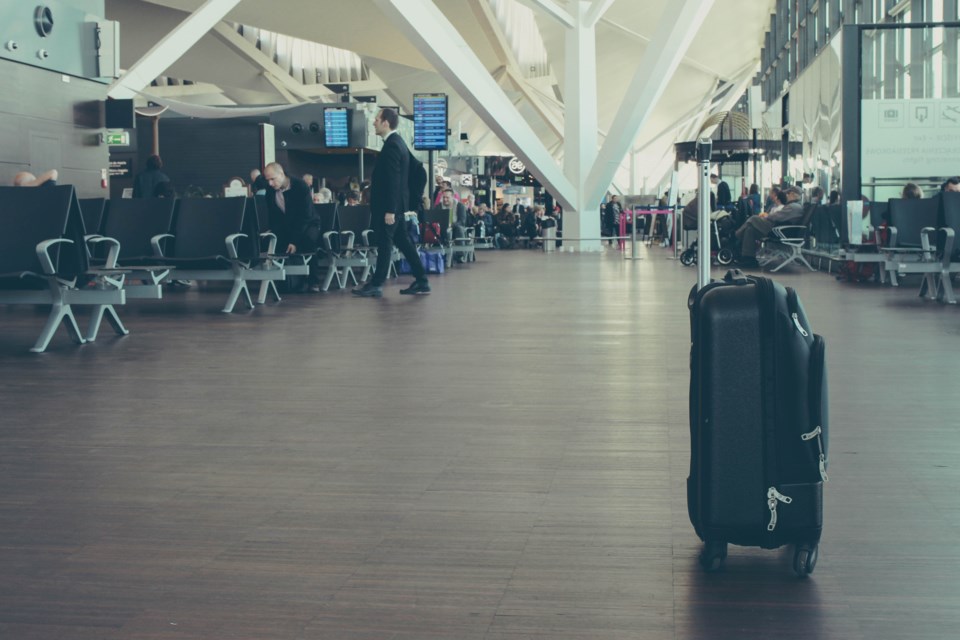Are the people you lead your path to power and success, or are you their servant? And which kind of leader would you follow?
I wonder if this is partly what is behind the outcry surrounding senior public officials and their out-of-country holidays?
Judging from the vitriol on social media, there isn’t the appetite to cut our public servants much slack. The response to Police Chief Stephen Tanner’s trip to Florida was 90 per cent negative, with a few posters not even waiting to learn any details before calling for his head and that of Mayor Rob Burton, who served as Chair of the Police Services Board. According to the new Chair, Oakville Regional Councillor Jeff Knoll, direct email communication was even more aggressive: “makes social media look like Hallmark greeting cards”.
Across Canada, at all levels of government, elected officials are stepping down from some of their responsibilities or resigning outright because of public reaction to their out-of-country travel. In Oakville, people skateboarding with their kids and struggling restauranteurs letting customers finish their coffee fifteen minutes after closing time have been hit with $800 fines. This kind of thing is going on across the country as officials try to send a message: don’t do anything that could contribute to the spread of the virus. Vaccine immunity will be here soon, be patient and don’t let up now.
Clearly, words and deeds must match up, and setting an example is a big part of leadership. Like all Canadians, Oakvilleans are making big sacrifices to help slow the spread. Most of us have had little human contact outside our families for months now. Our children’s education has been badly interrupted, with long-term consequences for some. Kids aren’t playing hockey. Small business owners are stressed. There are myriad other consequences of our trying to control COVID-19: in mental health and addiction, domestic abuse, and food insecurity. For the many agencies of the United Way, for example, demands for help are greater than at any time in living memory.
At the same time, non-essential travel is discouraged, not banned. There are lots of ways to interpret that, but it means at least keep it to a minimum, and think hard about your safety and about avoiding contributing to the transmission of the virus. The definition of “essential” is left to individual judgement. No one knows the exact right answer to anything. For example, it’s OK to ski in Alberta but not in Ontario. According to the MIT calculator we wrote about recently, flying itself can be quite safe. Rent a car and a kitchen equipped vacation unit, and you are arguably no more at risk than staying home. It’s non-essential, but you are trusted to take precautions appropriately and to make the decision yourself.
Similarly, flying to Florida, to your own home, is up to you, and many Canadians have done so (with the added bonus that some got the COVID-19 vaccine earlier and at no charge, before the residency requirement was imposed). The chief and his partner needed to sell a home that is hurricane damaged, developing mould, with insurance risks as a consequence. They were building a new home to accommodate their larger family, which added to the urgency. Many dealing with that kind of substantial investment would also feel the travel was essential.
The point here is that it’s just not black and white. There is judgement involved. In the case of Stephen Tanner, Rob Burton in his role as Chair of the Police Services Board, felt the trip was warranted. In the current climate, he clearly underestimated the public relations fallout. He has resigned from the board, a fairly low-cost way to pay a penance, but a penalty, nonetheless. For his part, the chief has apologized, though not everyone would agree it was warranted, given that he sought permission. Nonetheless, as the leader of a force that could find itself enforcing COVID-19 restrictions, he could perhaps have tried harder to find a way to ensure a fair sale of the property without needing to attend in person.
Since then, the Police Services Board has decided to retain Tanner in his position. Regional Councillor Jeff Knoll, who was Vice Chair, became Acting Chair on the resignation of the Mayor, and has now been elected Chair. Regional Chair Gary Carr has filled the spot left vacant by Burton.
So, what lessons can we take from this?
First, COVID-19 or not, life must go on, there is such a thing as essential travel, and people don’t forfeit their right to make that judgement because they have a responsible public service role.
Second, leadership by example matters. The notorious holiday in St. Barts, even if conducted safely, is just not an appropriate thing for an elected official who is part of the group imposing the restrictions. It says: “Do as I say, not as I do,” “One rule for thee, one rule for me,” and at worst, “I am here for me, not for you.” Even if this was an out of character lapse for MPP Rod Phillips, the lack of judgement points to not taking the responsibility of leadership seriously.
Third, we the public, too, need to exercise good judgement. Rushing to conviction and piling on is hardly going to attract better public servants in the future. And goodness knows, this crisis has demonstrated we direly need good public servants.



